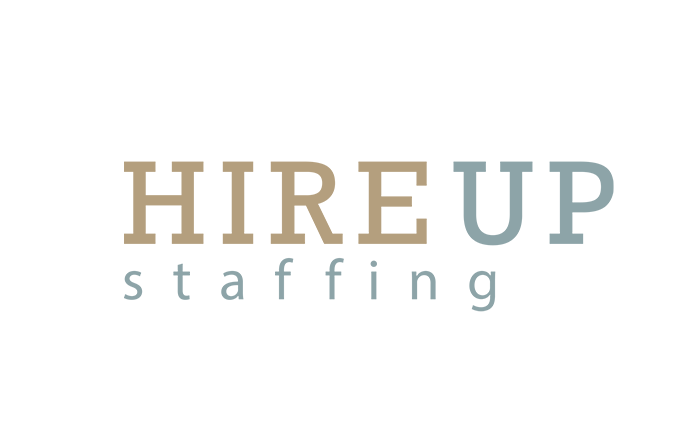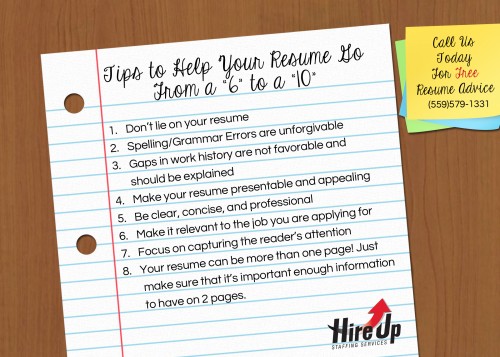How Much Can A Bad Hire Cost You?
How much can a bad hire cost you? A survey from EMSI and CareerBuilder has found that it can be as much as $50,000. Have we got your attention yet? Without a thorough recruitment process to screen out the “bad apples,” a bad hire can cost your business more than you know.
Consider the difference in productivity between a great hire and a subpar employee, doing just enough to get by without being fired. A great employee is looking for a place to move up. They treat their superiors with respect and look forward to making a good impression in hopes to stand out. They are highly driven to succeed, and go above and beyond with the hopes that when the opportunity arises for advancement in your company, they will be the first choice for the job. A bad hire is usually there just for the position they applied for, and do only what it takes to maintain a level of performance that ensures they won’t be let go.
Now consider the effect this has on your other employees. If the “bad apple” slacks off, produces little, and disregards their superiors, what will happen to your “good apples”? More often than not, they won’t be inclined to pick up their co-workers slack, and if they do, they won’t be happy about it. Good morale throughout your office plays a big role in productivity, and in turn, profits. When one person begins to slack, it isn’t long before others are following their lead and production begins to drop.
How might your clients feel if they are being helped by a less than friendly employee who cares little about the position they hold with your company? According to the survey, customer relations is one of the largest areas to suffer from poor hires. A customer is more likely to give you their business when they are dealing with a great employee that makes them feel like they are truly appreciated. Both new and existing clients can be lost if they are interacting with the wrong person. Most clients are willing to spend more if they feel like they have a good relationship with your business, but that all depends on the one-on-one interactions of your employees. If you lose a client, you lose a sale, and potentially many more.
Now what can you do to avoid these losses? A great staffing agency can help to ensure the employees you hire are all “good apples.” Where can you find a good staffing agency? Well lucky for you, you already have. Hire Up Staffing! Call us today (559)579-1331
Is Your Resume a “10”?
Everything that we have learned until now about resumes may be false. Experts in the field of recruiting, just like us, have done their research and found the truth about what can make or break a resume.
On a scale of 1 to very important, we have found that Work Experience, Skills, and Presentation far exceed Education/Training, Sense of Personality, and Extra-Curriculars. While all of those things are very important, studies show that employers seem to be drawn to specific areas on a resume first before all else.
Many employers and recruiters receive an abundance of resumes for each job opening. A pole was taken on this topic and they found that due to such high volumes in applicant resumes almost half of the respondents scan or speed-read resumes, and a quarter of them skip everything and go straight to the important stuff. Most look for keywords and move quickly in search of something that stands out to them. In short, the job seeker should have something very impressive and relevant to say within the first half of the page.
Here are a few tips to help your resume go from a “6” to a “10” and to ensure that you stand out from the rest!
- Don’t lie on your resume
- Spelling/Grammar errors are unforgivable
- Gaps in work history are not favorable and should be explained
- Make your resume presentable and appealing
- Be clear, concise, and professional
- Make it relevant to the job you are applying for
- Focus on capturing the reader’s attention
- Your resume can be more than one page! Just make sure that it’s important enough information to have 2 pages.
At Hire Up Staffing, we are dedicated to finding the right job for you. As experts in professional resume building, we would like to offer FREE RESUME ADVICE!
Contact one of our Staffing Agents today! (559) 597-1331
Referenced Article: www.staffingtalk.com/recruiters-weigh-in-on-resumes/
Temporary – Notice or no notice? What do you think?

People are sometimes mislead by the word “temporary” or being a “temp”, which at Hire Up we are not a big fan of using those words. We feel that everyone who works for us, temporary or otherwise, are Hire Up employees and we present ourselves with a strong level of professionalism.
We do recognition programs, offer safety bonuses in some positions, do holiday gifts and constantly remind people that we appreciate their hard work.
We get asked quite a bit by our employees that whenever you are working on a temporary assignment why is it necessary to give a notice when something comes up that you can’t fulfill the job? The answer is actually simple – What would you want that person to do for you if your roles were reversed and you were the employer? Would you want some heads up or would you want to walk into the office one day with the phone ringing off the hook because someone decided last minute not to come back?
Now there are definitely circumstances that come up that don’t permit you to continue and being that this is a people oriented industry, we get that. We approach every situation with a level of respect and understanding for both sides because ultimately we want our staff to be just as happy as the companies that we work with so we always try to find a happy medium for everyone involved, but we can’t do that if people aren’t going into every employment situation, temporary or otherwise, with a high expectation of professionalism and understanding on their end as well.
Check out this article on the subject on how the industry is shifting. Some staffing companies are working in repercussions into their policies while others are adding in incentives to get people to be punctual, reliable in their schedule and give adequate notices if they have to leave an assignment.
We want to know… What do you think would be helpful for us to raise the bar with our staff? Be ‘the boss’ for the moment and tell us how you would structure your policies. We look forward to hearing from you!
View the original article
http://www.staffingtalk.com/make-temps-give-notice-before-quitting/
How to Answer the Four Most Common Interview Questions
“Not a professional interviewer…what steps will we be taking today…?”
- When asked, “Tell me about yourself.” (spend 2-3 minutes) Background, Education, etc…
Ask employer, “From your perspective, what do you require for a (position title) to do? Ask what they need.
Speak to their needs. - Ask, “What is the #1 priority in this position?” Expand on that point.
- Ask, “What are the first year’s goals in this position?”
- Ask, “What obstacles do you see that could stop you from meeting these goals?” Expand on your background to support how you have overcome similar obstacles.
- Candidate – Make list of goals and have it in writing.
- List 8 to 10 questions that you need answered to make a career change:
– Type of company, type of employer/interviewer (Who else will I be interfacing with?), Projects (past, present and future). - Do not discuss salary. “As much as the position is worth”, or along those lines.
- Close for the job – Ask the employer to review, then hit him with questions first: Ask the employer – “Do I have the qualifications you are looking for?”
- Call me.
How to Answer the Four Most Common Interview Questions
There are some questions that tend to pop up during almost every job interview. The bad news: These questions can be quite difficult to answer. The good news: Because they are so common, you can prepare for them well in advance and give a perfect answer without breaking a sweat. So allow me to present four of the most common — yet most perplexing — interview questions and how you can best answer them.
1. “Tell Me a Little About Yourself”
This oldest of questions is not an invitation to talk about your difficult childhood, your favorite grandmother or how you won the state swim competition in high school. Instead, it’s a request for you to describe what you can offer the company.
In his excellent book 101 Great Answers to the Toughest Interview Questions, author Ron Fry suggests focusing on:
- Your key accomplishments at previous jobs.
- The strengths demonstrated by those accomplishments.
- How these relate to the job for which you’re applying.
The goal is not to summarize your resume — the interviewer already has a copy of that. Rather, tell how you came to be interested in this particular company and job, and weave examples of past accomplishments throughout to demonstrate why you are the perfect candidate.
2. “Why Did You Leave Your Last Job?”
The most important point to remember when answering this question: STAY POSITIVE.
The biggest sign of a troublemaker is when someone trashes his or her former boss or company during an interview. It doesn’t matter if your boss was a jerk or if you hated your coworkers — an interview is not the place to vent past frustrations.
Rather, the best way to answer this question is to stay positive and talk about your desire for growth opportunities. This will paint you as a proactive employee who enjoys responsibility and challenges.
Here are some quick pointers for answering this question, depending on your circumstances:
- IF YOU WERE FIRED : Be honest, but quick about explaining it. Don’t get into the political details; rather, explain what you learned from the experience and how it makes you an even stronger employee today. It’s not a good idea to lie about your termination. When the interviewer calls your references, he or she will most likely find out you were fired anyway. So be honest, and explain what you learned.
- IF YOU WERE LAID OFF : This is not nearly as taboo as it was even five years ago, so don’t apologize or act defeated. If a company goes bankrupt or had massive layoffs, simply explain, “Because of the economy, the company decided to eliminate six departments, including mine.”
- IF YOU QUIT : Again, be honest and stay positive. State that the work being offered wasn’t challenging enough, that you are seeking higher levels of responsibility or simply that you are ready to make the next step on your career ladder — and that the job for which you are interviewing is the ideal next step.
The secret is to stay positive and discuss your desire for growth. Hiring managers love applicants who actively seek responsibility.
3. “What’s Your Biggest Weakness?”
What are you supposed to do — tell them why they SHOULDN’T hire you?
The “weakness” question is popular with interviewers not because they want to torture you, but because they’re interested in hearing how you tackle challenges.
The most important thing to remember is that after you name your weakness, you MUST discuss what you have done to overcome it.
Pick a weakness that is real but understandable or relatively harmless. Whatever weakness you pick, be sure that it is work-related (“I have a tendency to overfeed my dog” is NOT an appropriate weakness) and that you present the strategies for how you overcame it.
Here are a few examples:
- “I used to have a tendency to procrastinate. So now I am always sure to set a strict schedule for all of my projects well in advance and I set personal deadlines. This organization has really helped.”
- “Once in a while, I focus too much on the details of a project. So now, when I’m working on a project, I always make sure at the end of the day to sit back and take a few minutes to think about the general scope of my work. It forces me to keep priorities straight and helps me keep the right mindset.”
- “I used to have some problems with organization. So now I carry a schedule book around throughout the day and I also use this Palm Pilot to keep me on track. It’s worked out great!”
You don’t want to pick a weakness that will torpedo your chances — even your weakness should speak strongly toward your skills. The examples above all address honest weaknesses; here are a few other “safe” weaknesses that are easy to discuss:
- I tend to be a perfectionist.
- I sometimes work too hard, leading to unnecessary stress.
4. “Do You Have Any Questions for Me?”
Yes, you do.
You should always try to ask a thoughtful question or two at the end of an interview. It shows that you’ve been listening and that you’ve done your research on the company.
What should you ask? Here are some suggestions:
- “Does this job usually lead to other positions at the company? What kind of positions?”
- “What do you like best about this company? Why?”
- “What could the ideal candidate do to make your job easier?”
- “What would be the most important ability for a person to have in order to succeed in this position?”
- “What are the most important short term goals for this department? What are the most important long term goals?”
- “What are your formal goals as a manager? What kind of challenges are you facing in meeting these goals?”
- “What are your formal goals as a manager? What kind of challenges are you facing in meeting these goals?”
- “How is your success and the success of your department measured?”
- “What does your boss expect of you and your team in terms of performance? What really makes your boss happy?”
- “What qualities are you looking for in the right person for this position?”
- “What kind of qualities and skills would it take to really succeed and make a difference at this position?”
- “What would be the top priorities of the person who accepts this job?”
- “Can you describe a typical day for someone in this position?”
- “What are the day-to-day expectations and responsibilities of this job? What would make that person a superstar?”
- “What kinds of challenges are you currently facing in your department: How tough a position does this put you in? What would solve this problem for you?”
DO NOT ask about salary, vacation days, benefits or anything else that would make it look like you’re more interested in the compensation package than the company. Also, don’t ask too many questions; just a couple will be fine.
And the most important question of all : Don’t forget to ask for the job!
I’m very interested in this job. It’s exactly the kind of job that I’m looking for. What is the next step in the interview process
Hire Great Employees without an HR Department

Hiring people is a very big deal, which is why it is very important to take time when hiring and managing employees. Many companies do not have a permanent human resources department, so in lieu of HR a staffing firm can help. In reality, business owners do not even need HR departments 100% of the time, so depending on how the company works it’s sometimes a viable option to outsource the job as needed.
This is especially true for startups, when hiring the first few employees becomes a tedious process that can make or break the business and could possibly cause issues for the owner or owners. This is also especially true for inexperienced business owners who still have little or no idea on hiring practices.
Here are a few hiring mistakes to avoid, with solutions you may want to consider.
1. Not being involved in hiring people
Not all companies have the luxury of having an HR department or even just one dedicated HR person, but it is still very important to be involved in the hiring process. Even if you get a staffing firm to get employees for you, you really need to be immersed even in the slightest level before making hiring decisions.
You simply cannot allow anyone else to make the decision for you. A staffing firm such as ours can filter the applications and sort them out, but it should always be up to you to decide which people are best fits for the open positions in your company.
The solution? Interview each potential hire by yourself. By seeking the help of a staffing firm, you get down to business immediately and get only the best of the best – grant an interview to the most qualified who make the cut. It is always best to make the judgment call yourself, to see if their skills and personality fit the position and company culture. It is much better for the long run, rather than testing out various people and letting them go once you realize they’re not the best fit.
2. Hiring too soon
Time is of the essence, but there is also such a thing as hiring too soon. This is especially true for startups and smaller companies who are still “young” and in the process of building their business. The reason behind this is because at the birth of a company, there’s usually more money going out than in. This is the reason it is important to get people who bring value to the company – people who offer their skills in correct proportion to the value they are bringing into your business.
What to do? Always evaluate when it is appropriate to hire – until your profits balance out things (meaning it’s more than just breaking even). Once you are actually able to afford paying for additional employees, that’s the perfect time to get new people. You may be asking, how in the world can that happen? Outsource! It’s very affordable to hire temporary staff that are still able to do great at their jobs despite the short-term nature of a position. Once profits skyrocket, you can either choose to retain them and absorb them as permanent employees, or you can be in the lookout for people to fill in the positions on a more permanent basis.
3. Not being immersed enough and making assumptions about various employee aspects
Sometimes, it’s difficult not to make managerial assumptions. It’s easy for people to forget what it’s like to not be in a managerial position, so employee duties and expectations are often overlooked. Unless you are very exposed in what your staff do, you probably do not know their daily situation and routines, and it would be quite unfit to shift people around because you probably think they “might” be able to do other job positions in lieu of hiring new people.
As a solution, make sure to set very clear but realistic expectations from the very beginning. Let your employees, temporary or otherwise, know what to expect and how to be around the workplace.
A few tips to remember:
1. Hire someone not just because of their skills – make sure their interest is there as well. It’s not enough to be just proficient, as they have to be able to be relevantly interested in what they do.
2. Set professional expectations early on. It’s easy to blame employees for uncalled for behavior without realizing you as their boss should also set expectations (skill and behavior) clearly from the start.
3. Lead by example. Set standards by leading your group through example. If you as a boss exude a negative attitude or you are unwilling to work hard, just how much will that compel your employees to not do the same?
The bottom line here is that companies and management should see that people involved are as important as the business itself. For an establishment to be successful and for it to grow, it all starts with the right foundation – hiring the right people who will not only do the job well but will also stick around.
Even without an HR department, this can all be done and done well. If you’re on the lookout for employees but do not know where to start, reach out to us. If your business does not have an HR department, we’d be glad to help you out whether temporarily or for the long run.
Sources:
Interviewing Hints
Introduction
You always need to “take temperatures” because people have minds and they’re changing them constantly. You need to listen to what they don’t say. Being prepared for an interview is vital; the following preparation is very unique and effective in conducting a positive interview.
Things to Remember
- People have to buy you before they buy from you.
- People hire and accept emotionally first and justify logically later.
- People are most sold by your conviction rather than by your persuasion.
- Know your technology, but think PEOPLE.
- The decision to hire is made in the first 5 to 10 minutes of the interview, with the remaining time spent justifying that decision.
The Candidate Preparation:
Please take these notes to the interview and practice the anticipated questions that may be asked and your answers to those questions. Be sure to practice these steps out loud to yourself before the interview.
- What are the duties and responsibilities of the position I’m applying for? This is an excellent icebreaker question for the hiring authority and a great start to a successful interview. What % of my job is dedicated to administration, supervisory, and technical? (should = 100%)
- What is my number one priority that has to be done before I leave each day? Why? (Priorities are personal.)
- What are the production or sales goals? What obstacles would prevent me from reaching my goals?
- What are the short and long term goals set for the person in this position?
- Have questions for the hiring authority. Questions must be written out before the interview, while avoiding the topic of compensation and benefits for the first interview.
- Salary – this is a trap question. If the question is brought up a very good response is:
“I would like as much as the position will pay”
OR
“I am currently making/or made $_____ in my last position”.OR
Defer the question to your recruiter by saying “I have discussed my salary requirements with Melanie and I am very comfortable with you and her determining my rate of pay.” (This is the best option)
Be very careful that you don’t short yourself. Be sure to keep in mind your base salary, bonus program, stock options, gain sharing programs, performance bonuses, benefits, etc. - Ask for the job! “I haven’t interviewed in a while, what is the next step? Can we conclude our business today if all goes well?” OR summarize what you’ve done that ties in with the new position and ask, “Do I have the qualifications you’re looking for?” Then remain silent for an answer. If the hiring authority says, “I’m looking at other people,” you say, “How do my qualifications match the people you’re considering.”
(Your #1 priority is to receive an offer, if this is a position that you desire, your #2 priority is to know the next step.) - After you leave the interview, it is very important that you call us immediately
Candidate Prep Questions
( Remember, some and probably not ALL of these questions will need to be asked)
- What are the responsibilities of this position, and which are the most important? What is the #1 priority for this position
- What would be my first project? What obstacles would prevent me from reaching these goals?
- What results are expected of this position?
- What are the limits of my responsibility and authority?
- What problems and opportunities are associated with this position? How are you currently addressing this problem?
- In your opinion, what specific aspects of my background make me right or wrong for this position?
- What support or training is available to help me fulfill my charge here?
- Will I have subordinates? What are their strengths and weaknesses?
- Who will be my superior and what are his/her strengths and weaknesses?
- Are there any projects in progress for which I will inherit responsibility? What is their history and status?
- What are the goals of the company and my department?
- What criteria will be used to evaluate my performance? When are evaluations scheduled?
- What can you tell me about my peers in this company?
- Why did my predecessor leave this position?
- Why did you come to work here, and why do you stay?
- What advancement can a person expect in this company after doing this job well?
Summer Sizzle is complete, now it's time to TAILGATE!!
Day 4 of Hire Up Staffing's 12 Days of Giving – Toys for Tots

So we’ve made it to day 4 of our 12 Days of Giving and are highlighting a business that is very special to the Valley, National Raisin Company. Owners, Bedrosian, Abdulian and Asmar families organized a fundraiser at their company to support the Fresno Toys For Tots drive. The owners are giving all of their employees incentive to give back. For each toy donated by a staff member, their name is entered in a drawing that will be held at their annual Christmas party. Typically, National Raisin Company collects over 3 full boxes of toys and bikes. This year, they want to help do even more for this cause. Since their facilities can’t have non-employees visitor, they are encouraging everyone to donate to the various Toys For Tots drives around town.
To learn more about how you can get involved or to find a drop of location contact: Jessica Montano at TOYS FOR TOTS 559-797-1856
To connect with National Raisin Company call: Davina R. Merkow (559) 834-5981 Ext. 112
We were able to take a field trip to their company today and dropped of big bag of toys! Will you match our contribution?

Here is more about the cause:
MISSION: The mission of Marine Toys for Tots Foundation is to assist the U. S. Marine Corps in providing a tangible sign of hope to economically disadvantaged children at Christmas. This assistance includes supporting the U. S. Marine Corps Reserve Toys for Tots Program by raising funds to provide toys to supplement the collections of local Toys for Tots campaigns, to provide promotional and support material and defray the costs of conducting annual Toys for Tots campaigns. Other Foundation support includes providing administrative, advisory, financial, logistic and promotional support to local Toys for Tots Coordinators; managing funds raised and monies donated based on the use of Toys for Tots name or logo; providing other support the Marine Corps, as a federal agency, cannot provide; and conducting public education and information programs about Toys for Tots that call the general public to action in support of this patriotic community action program.
GOAL: The primary goal of the Foundation is the same as that of the overall Toys for Tots Program: i.e. – to deliver, through a new toy at Christmas, a message of hope to less fortunate youngsters that will assist them into becoming responsible, productive, patriotic citizens.
OBJECTIVES: The objectives of the Foundation are the same as those of the overall Toys for Tots program: i.e. – to help less fortunate children throughout the United States experience the joy of Christmas; to play an active role in the development of one of our nation’s most valuable resources – our children; to unite all members of local communities in a common cause for three months each year during the annual toy collection and distribution campaign; an to contribute to improving communities in the future.
Day 3 Of Hire Up Staffing’s 12 Days Of Giving – Hacienda Nica

Ho ho ho! It’s day 3 of the 12 days of giving and we’re reaching out to support a cause that is a little outside the Central Valley, ok way outside the Central Valley. Hacienda Nica is a an eco-lodge in Nicaragua that uses 100% of it’s profits to support the animals and children of the second poorest country in the western hemisphere. It’s also a cause that is near and dear to our hearts because it was founded by Hire Up’s very own Chantelle Lamoreaux and her husband Nick. They are currently running their #DollarAndaShare campaign which asks everyone to donate at least $1 and share their link on their social media. No contribution is too small as even a single dollar goes a long way down there. (check it out at youcaring.com/DollarAndaShare)








